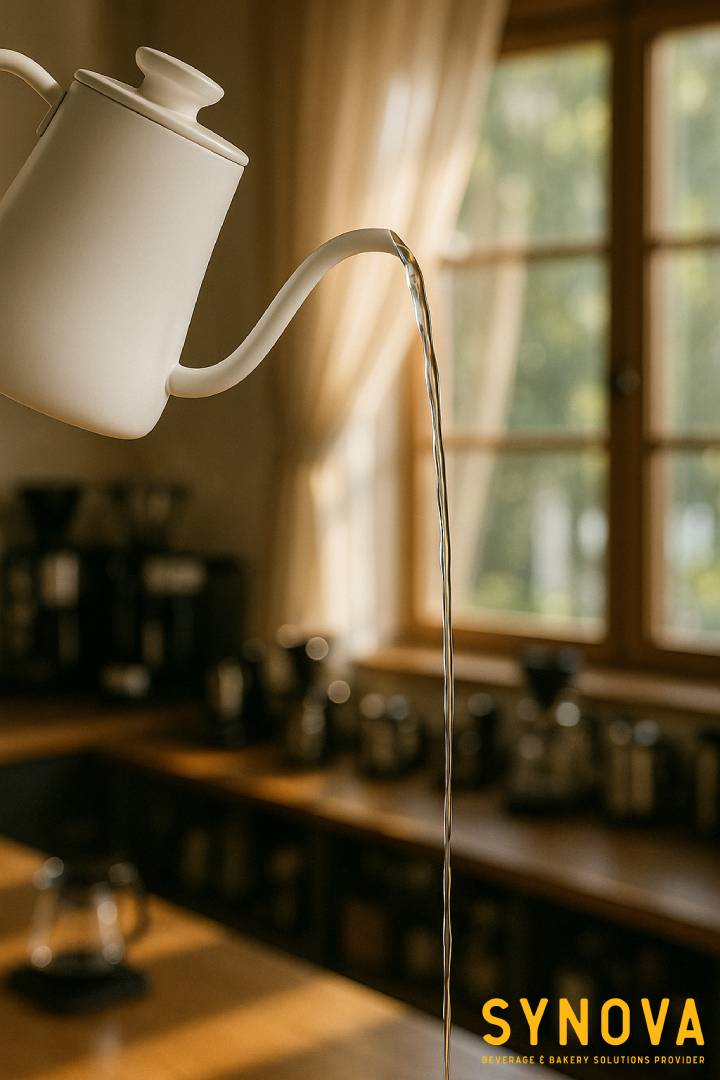Water: The Essential Yet Overlooked Ingredient in Flavor
Water: The Essential Yet Overlooked Ingredient in Flavor
Water: The Essential Yet Overlooked Ingredient in Flavor
Learn how water hardness, pH, minerals, and filtration affect flavor extraction, and how choosing the right water can elevate consistency and taste in tea and coffee beverages.
When aiming to brew the perfect cup of tea or coffee, the first factors that often come to mind are the quality of tea leaves, coffee beans, or brewing techniques. Yet one crucial element that heavily influences flavor—and is often forgotten—is water. As water makes up over 90% of both drinks, its role cannot be underestimated.
Why Does Water Matter So Much?
Because water constitutes nearly the entirety of these beverages, it is not just a medium to dissolve tea or coffee—it is the very key to unlocking flavor. Water extracts the taste, aroma, and chemical compounds that give tea and coffee their unique character. If the water quality is poor, even the finest tea leaves or premium coffee beans will result in a drink that is bitter, flat, or disappointingly one-dimensional.
Key Factors in Brewing Water
1. Water Hardness
Water hardness is determined by the amount of dissolved calcium and magnesium.
- Hard water contains high levels of these minerals. It leaves limescale in kettles and does not lather easily with soap.
- Soft water has very low mineral content and lathers well. Distilled water and water filtered through Reverse Osmosis (RO) are also classified as soft.
Effects on brewing:
- Too hard → bitter, harsh, and unpleasant flavors.
- Too soft → thin, flat, and lacking depth.
- Ideal hardness: moderate, around 50–150 mg/L.
2. pH Level
The ideal water pH for brewing should be neutral, between 6.5–7.5.
- Too acidic → overly sharp or sour taste.
- Too alkaline → muted, dull flavors with an unnatural bitterness.
3. Contaminants (Chlorine & Heavy Metals)
- Chlorine in tap water can distort flavors and add unwanted odor. If using tap water, let it sit to allow chlorine to dissipate before brewing.
- Heavy metals like lead, arsenic, mercury, or cadmium are harmful to health and can leach into acidic water. They also alter taste and color.
Best practice: Always use certified filtration and safe containers to eliminate contaminants. Avoid strongly chlorinated tap water directly in brewing.
What Water Works Best for Tea?
- Green Tea: Sensitive to both heat and minerals. Use filtered soft water at 70–80°C. Hard water makes it bitter and dull in color.
- Oolong/Black Tea: More tolerant of minerals, but still best under 150 ppm hardness. Ideal at 85–95°C. Natural mineral water with moderate mineral content can enhance depth and aroma. Different mineral profiles from various sources can pair differently with certain teas.
What Water Works Best for Coffee?
Coffee requires water with balanced mineral content:
- Magnesium helps highlight flavor complexity.
- Too hard → harsh bitterness and lingering astringency.
- Filtered water (carbon filters) or certain mineral waters can enhance flavor clarity and complexity.
Water Options for Beverage Businesses
Reverse Osmosis (RO) Water
-
- Extremely pure, removes nearly all minerals.
- Provides consistent flavor clarity.
- May require re-mineralization for optimal extraction.
Natural Mineral Water
-
- Suitable if TDS is moderate (100–150).
- Can enhance balance and smoothness of flavors.
- Must be carefully chosen to complement specific tea or coffee varieties.
General Filtered Water
-
- Usable if filter maintenance is consistent.
- Must ensure safety—no chlorine or chemical residues.
Conclusion
Water is not just an ingredient—it is the primary carrier of flavor in tea and coffee. Good water lays the foundation for a truly enjoyable beverage. For enthusiasts and café owners alike, investing in the right water quality means elevating the entire drinking experience.
Click to choose your preferred purchase channel.
https://linktr.ee/SYNOVA





